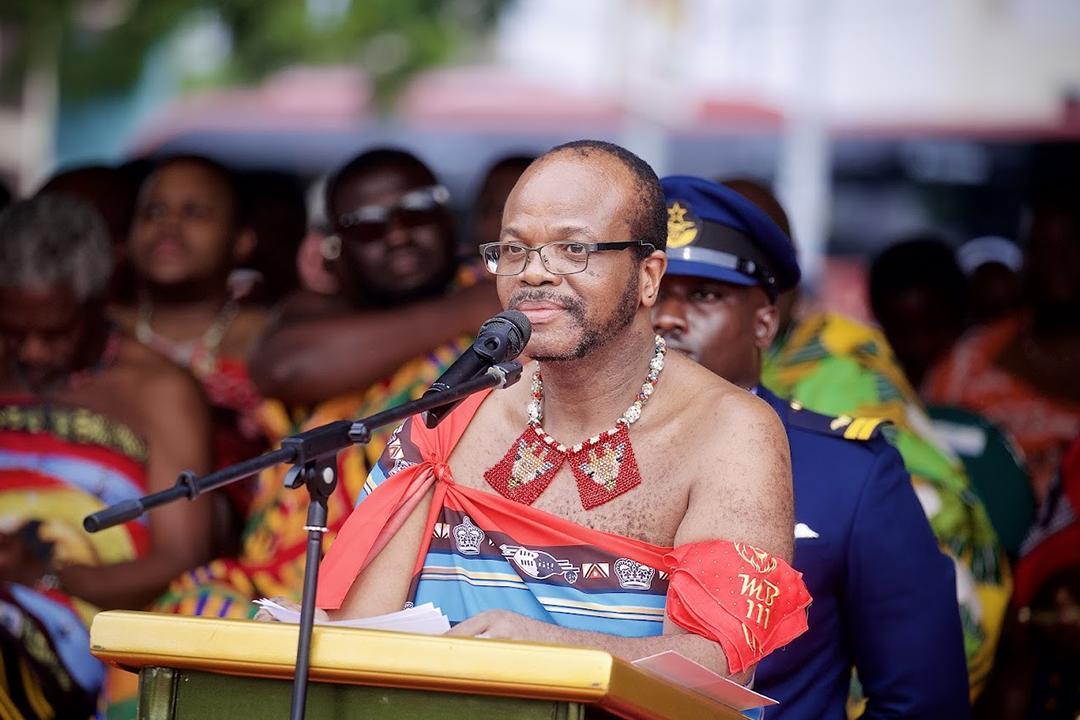Africa-Press – Eswatini. King Mswati III, who ascended the throne in 1986 at the age of 18, is not only the Ngwenyama (King) of Eswatini but also a symbol of continuity, tradition, and national pride for Emaswati.
His leadership is deeply rooted in the Tinkhundla system of governance, which emphasises community participation and collective decision-making. Emaswati view their king as a unifying figure who upholds their cultural identity and fosters a sense of togetherness in a world increasingly influenced by external narratives. The love for His Majesty is evident in the outpouring of support seen across social media and public gatherings, particularly during significant national events like the Umhlanga Reed Dance and Incwala ceremonies, where thousands of Emaswati come together to honour their monarch and celebrate their shared heritage.
The recent article by Sihle Mavuso has been met with indignation by Emaswati, who see it as an affront not only to the king but to the entire nation. The term “playboy” is a gross misrepresentation that ignores the king’s role as a custodian of Swazi culture and a leader dedicated to his people’s welfare. Emaswati recognise that such labels are often perpetuated by foreign media outlets that fail to appreciate the complexities of Eswatini’s monarchy and its deep-rooted traditions, including the practice of polygamy, which is a respected cultural institution in the kingdom. Far from being a point of criticism, the king’s adherence to these traditions is seen as a testament to his commitment to preserving the Swazi way of life.
Defending the King Against External Criticism:
Emaswati are no strangers to external attempts to undermine their monarch. Over the years, foreign media and certain international organisations have criticised our King Mswati III, often focusing on his personal life or misrepresenting him as incompatible with modern governance. However, Emaswati remain steadfast in their defense of their king, viewing such attacks as rooted in ignorance or deliberate bias. The monarchy, under King Mswati III and the Queen Mother, is a stabilising force that has guided Eswatini through challenges, from economic development to maintaining peace in a region often marked by instability.
The king’s supporters point out that attempts to tarnish his image often overlook the broader context of his leadership. For instance, during his 57th birthday celebration in April 2025, His Majesty emphasised the importance of national unity and inclusive development, crediting the Tinkhundla system for Eswatini’s progress in political, economic, and social spheres. Emaswati echoed this sentiment, with many taking to social media to express gratitude for his leadership, describing him as a “visionary” who has ensured the nation remains “ably-led through his wisdom.” Such displays of loyalty highlight the deep bond between the king and his people, a bond that external critics like Mavuso fail to understand.
The King’s Good Works and Commitment to Unity:
King Mswati III’s reign has been marked by significant efforts to foster unity and development in Eswatini. His leadership has overseen transformative infrastructure projects, such as the King Mswati III International Airport and the Mavuso Trade and Exhibition Centre, which have boosted economic growth and provided opportunities for small and medium enterprises to thrive. The king has also championed initiatives to improve the nation’s road network, now ranked among the best in the Southern African Development Community (SADC), enhancing connectivity and economic opportunities for rural communities.
Beyond infrastructure, His Majesty has consistently promoted unity among Emaswati. During his 2025 birthday address, he invoked an African proverb: “A Kingdom thrives when its people uphold their leader, just as roots strengthen a mighty tree.” This call for collective support resonates deeply with Emaswati, who see their king as a unifying force. His Majesty’s encouragement of academic and cultural exchanges, such as his recent engagement with Emaswati students at Ghana’s Kwame Nkrumah University of Science and Technology, underscores his commitment to empowering the next generation to contribute to nation-building.
The king’s compassion was also evident during the COVID-19 pandemic, when he redirected resources intended for his birthday celebrations to support the nation’s fight against the virus, earning widespread praise for prioritising the well-being of his people. These actions reflect a leader who balances tradition with a forward-looking vision, fostering a sense of pride and unity among Emaswati.
A United Front Against Sensationalism:
The derogatory article by Sihle Mavuso is but one example of the challenges Emaswati face in defending their king and their nation’s reputation on the global stage. Yet, the response from Emaswati has been clear: they will not allow foreign media or individuals to define their king or their identity. The unity displayed by Emaswati in the face of such criticism is a testament to the strength of their cultural values and their trust in King Mswati III’s leadership.
As the kingdom continues to navigate its path toward progress, Emaswati remain committed to standing together, honouring their king, and preserving the traditions that make Eswatini unique. No matter how hard external forces may try to tarnish His Majesty’s name, the love and loyalty of Emaswati will endure, rooted in a shared vision of a prosperous and united nation under the guidance of their beloved Ngwenyama.
For More News And Analysis About Eswatini Follow Africa-Press







